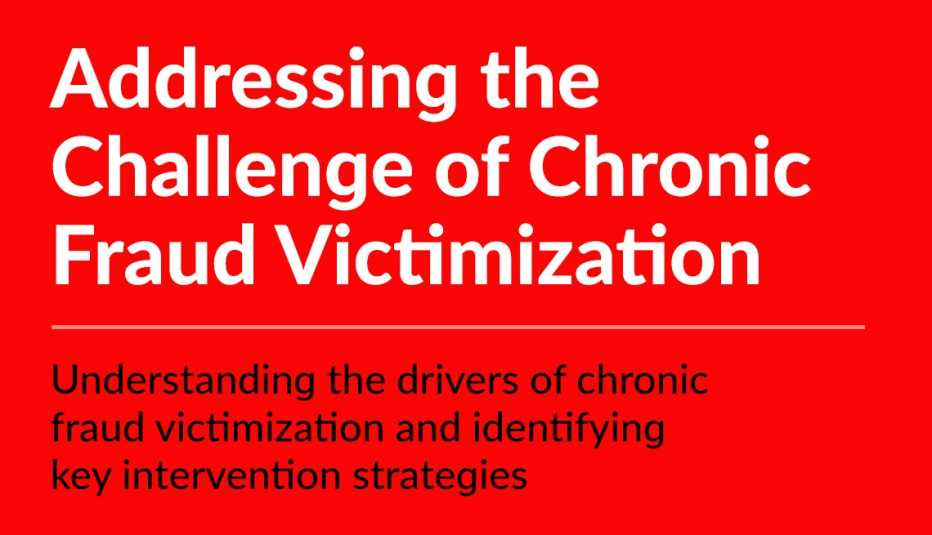AARP Hearing Center
He was a scientist granted patents for his discoveries, but he never struck it rich and became ensnared in a sweepstakes scam.
She, too, was successful, the owner of a store and three-unit apartment building. But single, childless and “petrified” of growing old alone, she got entangled in online romance scams.
What the two shared was an apparent need for fulfillment, according to a report — “Addressing the Challenge of Chronic Fraud Victimization” — that was commissioned by two nonprofits, AARP and the FINRA Investor Education Foundation. The report explores what drives a person to repeatedly become a victim and what interventions could disrupt the cycle.
A key question about repeat victimization: Are fraudsters’ masterful techniques and continual retargeting of people to blame, or is something more foundational at play?
Addressing the need for fulfillment, the report says sweepstakes scam victims seek a financial windfall to remedy their lack of resources and sense of “having to do without.” For romance scam victims, the need is for companionship, a craving exacerbated by feeling rejected or unattached.
While these dynamics might apply to onetime victims, chronic fraud victims experience “more intense emotional swings,” the report says. Thus, temporary feelings of fulfillment are replaced with lingering despair once a fraud is exposed, making “the original void much deeper,” it says, and the result is a “heightened vulnerability to future scams."
Among older populations, the likelihood of cognitive decline — while not universal — as a factor in repeat victimization “should not be underestimated,” the report says. Some warning signs: Victims consistently pushing loved ones away, doubling down on secrecy and refusing to entertain alternate explanations, even, for example, “after investing and losing enormous sums of money.” These red flags cause family friction, the report says, with “adult children grieving the loss of a parent they knew, before they have actually passed."






































































